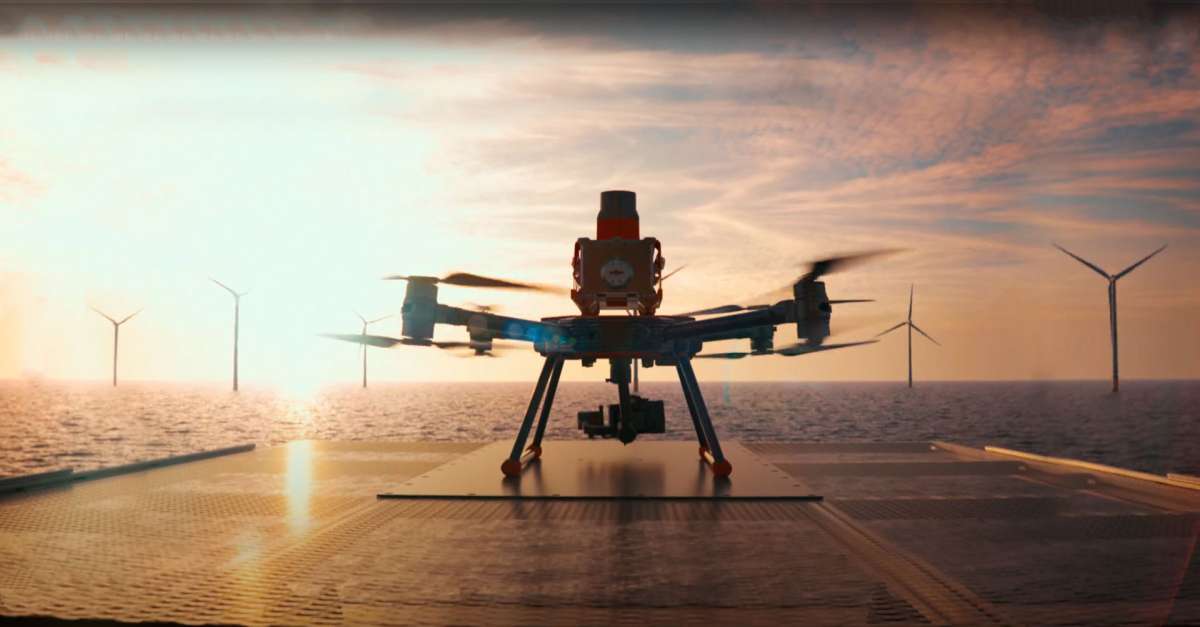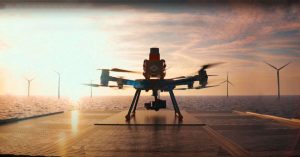
Using a hybrid power system – a “hybrid-electric gas turbine powerplant” – the brief is to deliver “extended range, endurance and a payload significantly greater than current rechargeable Lithium Polymer batteries”, and also to outperform crewed alternatives. It will avoid the need for an electrical infrastructure for re-charging batteries in the field or at sea. It’s anticipated fuel includes Jet A1 or diesel.
“The HLUAS will provide a payload of up to 250kg and have a potential range approaching 100km”, writes ISS Aerospace. “It will meet the demanding requirements of both defence & security clients by transporting large payloads to and from small naval platforms and ground pads without the need for a runway. It will outperform crewed alternatives by increasing scale and efficiency of operations while improving safety.”
The HLUAS will use an open architecture to support adaptable software and payload interfaces. The aim – supporting a range of potential cargo types – is to enable integration with broader enterprise and industrial systems. It could also, the company highlights, serve military needs, “particularly in congested and complex battlefield and logistic support environments”.
Based in Chieveley, Berkshire, ISS Aerospace specialises in autonomous uncrewed aerial systems. Applications include energy and defence, as well as security, utilities and also surveillance.
The HLUAS will be certified to both Civil and Military Aviation Airworthiness requirements using Marshall’s UK CAA and UK MAA Design, Manufacturing and Flight Test Organisation approvals.
DTEP
The award was made through the Defence Technology Exploitation Programme (DTEP), which in turn is sponsored by the Ministry of Defence’s Directorate of Industrial Strategy and Exports (DISE), and ISS Aerospace will be supported by Marshall Futureworx.
“We are excited to have been selected for funding in DTEP Cycle 1,” said ISS Aerospace CEO, Ryan Kempley. “Our Heavy Lift UAS will be capable of carrying a diverse range of payloads and will therefore be able to fulfil numerous potential roles for both military, commercial and off-shore support operators.”
“We have worked with DASA on numerous occasions – this time through DTEP – and our relationship with them continues to be a positive and productive experience,” he added. “We have already collaborated successfully with Marshall Futureworx on Project Lilypad and look forward to building on this relationship.”

Drones
For its part, Marshall Futureworx highlighted its experience building autonomous drones and using lightweight composite aerostructures.
“We are delighted to support ISS Aerospace in the development of the Heavy Lift UAS, this builds on our established relationship building highly autonomous drones for the offshore sector and other industries,” said the compnay’s Managing Director, Kieren Paterson. “The support we have committed to provide leverages our expertise in civil and military platform certification, lightweight composite aerostructures and integrated programme management. The combined strengths of ISS Aerospace, Marshall Futureworx and the broader Marshall Group, offers the potential to develop a world-class Heavy Lift UAS solution, capable of meeting the needs of both the military and commercial markets both domestically and abroad.”
Image: Marshall Futureworx, Project Lilypad
See also: Drone Test and Development Centre opens in Westcott






